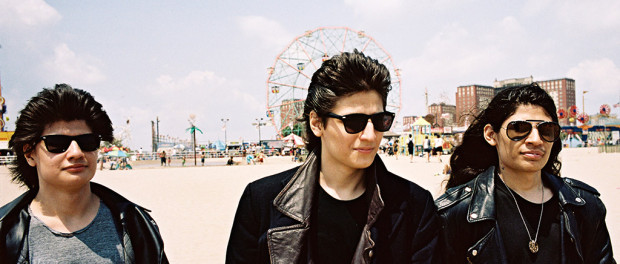The Wolfpack: A Childhood Spent in Captivity
The Wolfpack documents a very different way of life that is completely alien to most people. It tells the story of a family living in isolation in the middle of Manhattan, which seems pretty paradoxical. But that’s precisely how the seven Angulo children spent their entire childhood — in their small apartment in the Lower East Side, barely seeing the light of day.
Director Crystal Moselle visited with the Angulo family for her fascinating debut documentary and got the six brothers, Bhagavan, Govinda, Narayana, Mukunda, Krisna and Jagadesh, to reminisce on their unconventional childhood.
It was like they were living in a different world — the brothers say that they could count the number of times they had been out of their apartment during their formative years. The only glimpses they got of regular society were through their windows, on their very few outings, and, as we learn early on, through their beloved movies.
Re-enacting movies has always been one of their favourite pass-times. In one scene, one brother gives a tour of their movie collection – according to him, they have thousands of DVDs – while the others prepare a Batman costume they constructed out of yoga mats and cereal boxes. Their first step is to copy the scripts of their favourite films word for word. The more characters the better, of course, and Reservoir Dogs is a favourite given the six main characters. They then run through the house acting out the movie, shouting their memorized lines and brandishing guns made of cardboard.
Not only did movies provide a window through which they saw the real world, but they also provided an escape from their sometimes hard reality. The brothers remember their childhood as similar to being in a prison, the keys to which were constantly guarded by their overbearing father, Oscar.
Batman was a movie that gave the eldest brother hope and also a motivation to escape the confines of the apartment. He ventured out into the world while his father was out but eventually caused alarm because of the mask he chose to wear. He was brought to a psychiatric ward for the day and was given a therapist.
But this first escape was definitely a turning point in their lives. The father basically disowned the eldest brother because of it, but the others started going out regularly as well and leading more “normal” lives as a result.
Even though there are darker undertones to their story, the film isn’t depressing. On the contrary, the brothers’ endearing personalities come through from the start. They seem good-natured, passionate about what they love, and protective of their mother. Despite their captivity and discouragement from socialization, they seem to have turned out to be friendly and fairly sociable (though as one of them remarks, a lot has changed in a year; if this had been filmed a year before, they would have been like “zombies” and much less communicative).
We get to see the good and the bad elements of their upbringing according to them, and the reasoning behind it all, which is what makes the documentary so interesting to watch. We get to peer into this extremely unconventional way of living and get unlimited access to their thoughts and memories. Moselle’s directorial debut was definitely a success.
The Wolfpack is now playing at Cinema du Parc.







